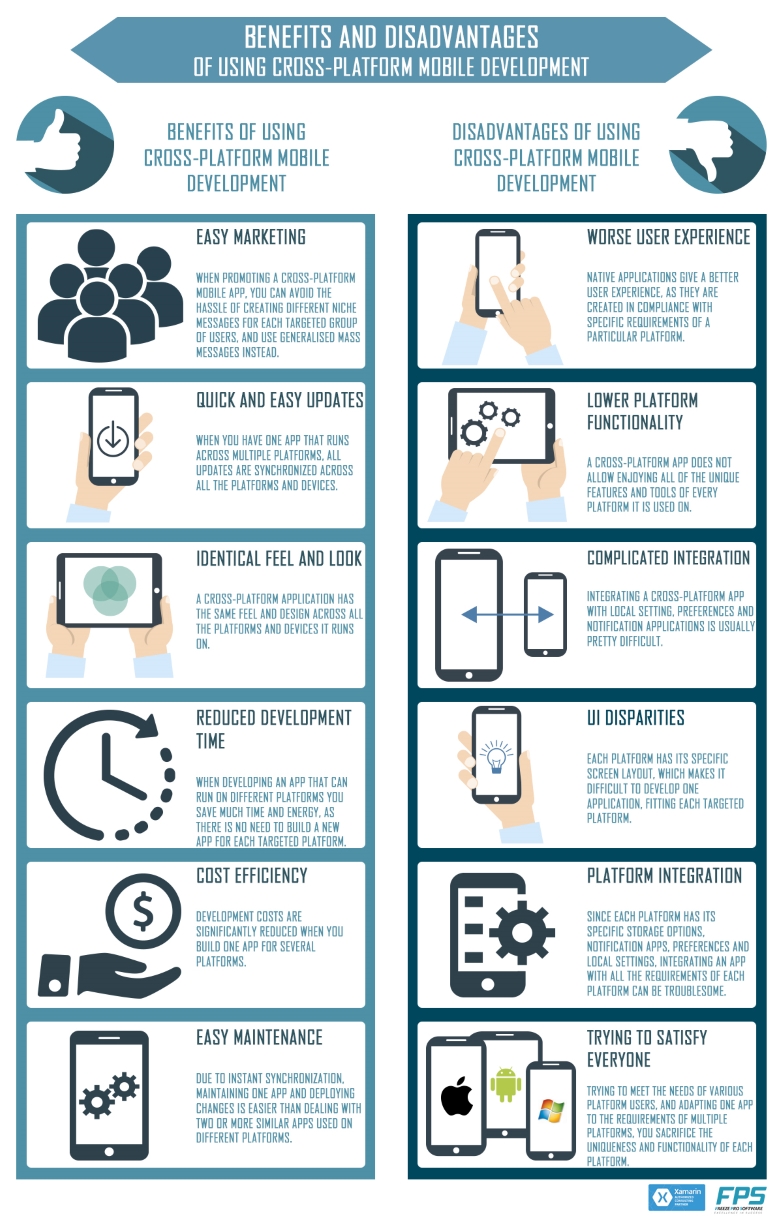
Advantages
1) Easy Marketing
When promoting a cross-platform mobile app, you can avoid the hassle of creating different niche messages for each targeted group of users, and use generalised mass messages instead.
2) Quick and Easy Updates
When you have one app that runs across multiple platforms, all updates are synchronized across all the platforms and devices.
3) Identical Feel and Look
A cross-platform application has the same feel and design across all the platforms and devices it runs on.
4) Reduced Development Time
When developing an app that can run on different platforms you save much time and energy, as there is no need to build a new app for each targeted platform.
5) Cost Efficiency
Development costs are significantly reduced when you build one app for several platforms.
6) Easy Maintenance
Due to instant synchronization, maintaining one app and deploying changes is easier than dealing with two or more similar apps used on different platforms.
Disadvantages
1) Worse User Experience
Native applications give a better user experience, as they are created in compliance with specific requirements of a particular platform.
2) Lower Platform Functionality
A cross-platform app does not allow enjoying all of the unique features and tools of every platform it is used on.
3) Complicated Integration
Integrating a cross-platform app with local setting, preferences and notification applications is usually pretty difficult.
4) UI Disparities
Each platform has its specific screen layout, which makes it difficult to develop one application, fitting each targeted platform.
5) Platform Integration
Since each platform has its specific storage options, notification apps, preferences and local settings, integrating an app with all the requirements of each platform can be troublesome.
6) Lower Flexibility
When developing a cross-platform application, you focus on commonalities, which in turn, leads to a lower flexibility of each platform.
7) Trying to Satisfy Everyone
Trying to meet the needs of various platform users, and adapting one app to the requirements of multiple platforms, you sacrifice the uniqueness and functionality of each platform.